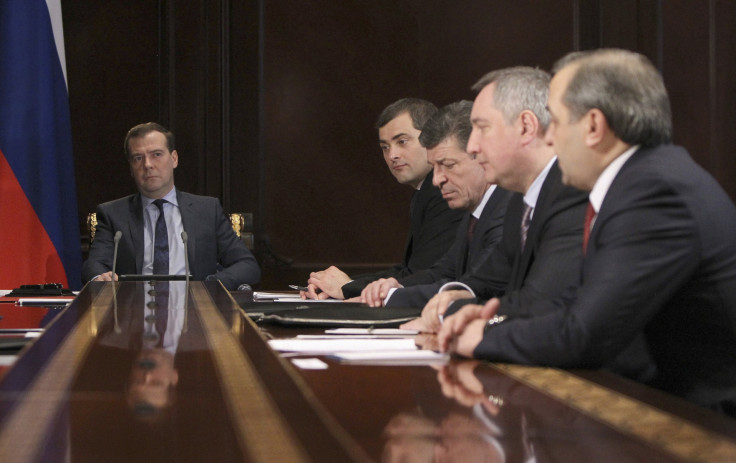'Stealing Stolen Money': Russia Miffed Over Cyprus Bailout

Russian officials aren't pleased with the Cyprus bailout deal that included a one-time tax on larger bank deposits -- many of which are held by Russians.
On Monday, Russian Prime Minister Dmitry Medvedev criticized the final deal agreed upon over the weekend between the Cypriot government and the triad of its international creditors (the European Union, European Central Bank and International Monetary Fund).
The last-minute €10 billion ($13 billion) bailout package levied a 10 percent tax on all deposits totaling over €100,000 ($130,000) to raise the remaining €5.8 billion ($7.5 billion) needed to save the Cypriot banking system from collapse.
“They continue stealing what's already been stolen,” Medvedev said of the deal, referring to the tax as well as the illicit nature of Russian offshore accounts in Cyprus, Russia Today reported.
“We have to figure out what this story turns into in the long run, what the consequences for the international financial and monetary system will be -- and thus, for our own interests as well," he added.
Russian deposits are believed to make up as much as 40 percent of Cyprus’ banking center, accounting for some $32 billion, according to financial services company Moody’s.
Many of these deposits are held by Russian businesses and typically flow back into the Russian economy as foreign direct investment, leading critics to accuse the Cypriot banking system of laundering money for criminal enterprises.
In 2011 alone, Cyprus sent $128.8 billion in foreign direct investment to Russia, while its own GDP amounted to only one-fifth of that amount, according to a report from the Center for International Policy’s Global Financial Integrity program.
Nevertheless, Medvedev downplayed the alleged prominence of illicit Russian funds in Cypriot banks, saying that many government agencies worked through Cyprus “as it is convenient jurisdiction for transactions,” Pravda reported.
At the same time, the Russian prime minister, in his comments about the bailout “stealing stolen money,” suggested the bank tax was taking money that was removed from the Russian economy before Moscow had an opportunity to recover it.
Medvedev said it was important that the “actions of those, who withdrew money from the Russian economy, were assessed by the government” and that those engaged in criminal activity “be brought to justice and their money could return to Russia,” Russia Today reported.
The outcome of the Cyprus deal is expected to drive away Russian account holders from the island nation’s banking system, once considered an international tax haven for the wealthy.
“The Cypriots killed their country in one day,” said Fedor Mikhin, a Cyprus-based businessman concerned over the exodus of foreign account holders will have on the Cypriot economy, the Financial Times reported.
“The locals should understand: as soon as the money leaves, the people who go to restaurants, buy cars and buy property leave too. The Cypriots’ means of living will disappear,” he added.
“They are saying we laundered all the money, but they lived on that money for 10 years and forgot about it.”
Amid frustration over the terms of the bailout, the Russian government now must consider restructuring a €2.5 billion ($3.3 billion) to Cyprus, which has requested an extension on repayment.
Russia’s deputy prime minister Igor Shuvalov said Moscow would have to evaluate the details of the Cyprus bailout package before making its decision.
“As soon as we collectively explore all solutions, then we are going to offer some measure of their aid, either a new structure of this debt, or some other options,” Shuvalov said, according to Russian media.
© Copyright IBTimes 2024. All rights reserved.











